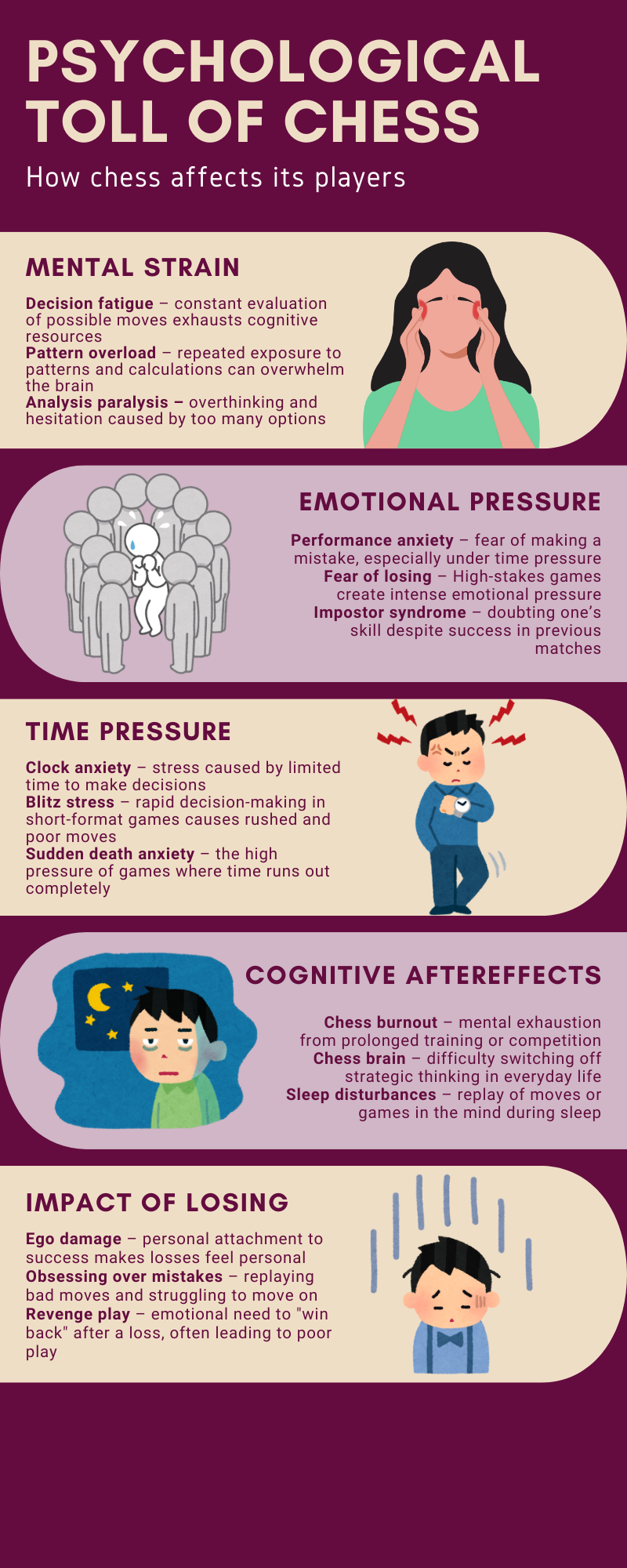
Chess is a mind game, yet the vast majority of people beyond the competitive circle have no idea of the sheer mental and emotional stress that the game imposes on players. Beyond strategic thought, chess requires absolute concentration, endurance, and emotional self-discipline, making it one of the most challenging games mentally on earth.
Competition in chess tournaments is stiff. The players bend over the board for hours on end, computing thousands of potential moves and anticipating their opponent’s plan, against the clock. Stress to deliver under pressure, combined with mental fatigue from prolonged thinking, results in a condition called chess fatigue - a condition of mental overload where decision-making ability is impaired. Great players like Bobby Fischer and Garry Kasparov have depicted the psychological cost of world-class chess. Fischer, who had a compulsion for the game, once described chess as war on the board, depicting the extremes of emotion in every move. Kasparov, following his iconic battles with IBM’s Deep Blue, conceded that playing against a computer was mentally challenging in ways he never anticipated.
Other than competition, chess also impacts leisure players. Research indicates that although chess has a positive impact on intellectual processes, it causes burnout and stress in individuals who make chess their life. The requirement for critical thinking and pattern recognition in the game reconditions the brain such that it becomes at times challenging for players to distinguish from their rational thinking outside the game.

References:
Strategy And Rest
Los Angeles Review Of Books
Effects of Mental Fatigue on Memory Function of Expert Chess Players
kottke.org
Global School of Chess
Chess.com